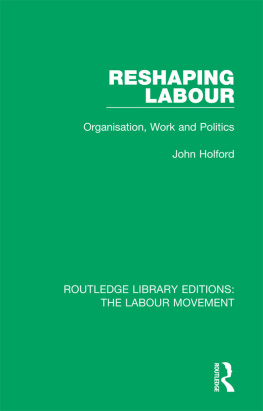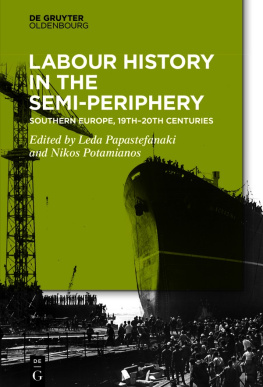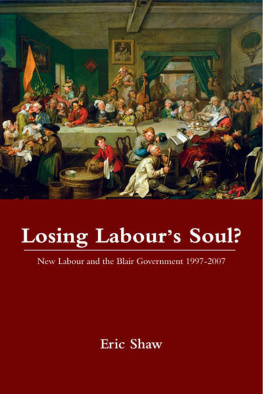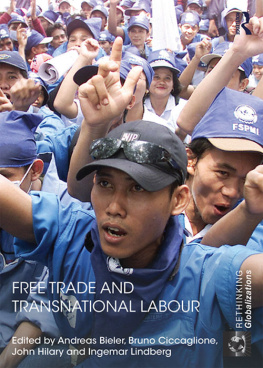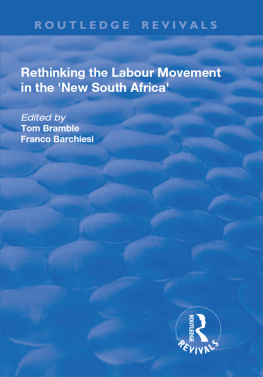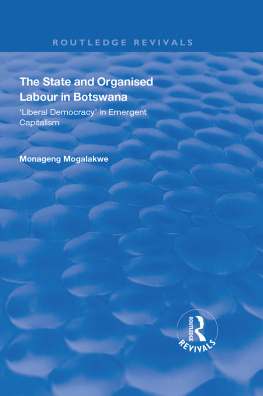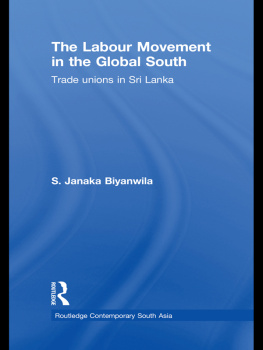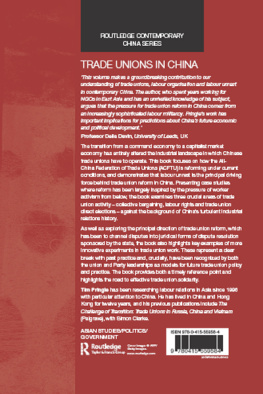First published in 1988 by Croom Helm Ltd
This edition first published in 2019
by Routledge
2 Park Square, Milton Park, Abingdon, Oxon OX14 4RN
and by Routledge
711 Third Avenue, New York, NY 10017
Routledge is an imprint of the Taylor & Francis Group, an informa business
1988 John Holford
All rights reserved. No part of this book may be reprinted or reproduced or utilised in any form or by any electronic, mechanical, or other means, now known or hereafter invented, including photocopying and recording, or in any information storage or retrieval system, without permission in writing from the publishers.
Trademark notice: Product or corporate names may be trademarks or registered trademarks, and are used only for identification and explanation without intent to infringe.
British Library Cataloguing in Publication Data
A catalogue record for this book is available from the British Library
ISBN: 978-1-138-32435-0 (Set)
ISBN: 978-0-429-43443-3 (Set) (ebk)
ISBN: 978-1-138-33394-9 (Volume 16) (hbk)
ISBN: 978-0-429-44561-3 (Volume 16) (ebk)
Publisher's Note
The publisher has gone to great lengths to ensure the quality of this reprint but points out that some imperfections in the original copies may be apparent.
Disclaimer
The publisher has made every effort to trace copyright holders and would welcome correspondence from those they have been unable to trace.
Foreword to the Re-issue
All books are of their time. Things were different when rather over forty years ago I began the research that eventually led to Reshaping Labour. Socialism, perhaps no longer at its zenith, still shaped politics across much of the world. In Britain, though Labours high tide may have turned, few sensed the neoliberal tsunami to come. Publishers issued books in camera-ready copy.
Yet if the world has changed since the 1970s, far too often the early 21st century echoes the early 20th century I described in Reshaping Labour. Today, Amazon staff are expected to process a package every nine seconds George Osbornes spending cuts may have cut a little less deep than the Geddes Axe, but austerity was their common mantra.
The book is a local account of the labour movement during the Great War, and through the war after the war: the years when capital reasserted its dominance while Labour edged its way into government. My thinking was influenced in different ways by social and labour history (political scholars such as Eric Hobsbawm and E.P. Thompson), by organisational sociology (particularly the work of Tom Burns and Michael Burawoy), by Marxist theory (especially Gramscis Prison Notebooks), and by the workplace industrial relations studies of the 1970s. In ways I then hardly recognised, it was also shaped by my own experience in adult and trade union education during the 1980s.
These somewhat eclectic origins contributed both strengths and limitations, as some reviewers recognised. Reshaping Labour was reviewed in journals across a range of academic fields and sub-fields (history; social, economic and labour history; political science; political economy; urban studies) though oddly, not sociology, the discipline where it originated. There was even a kind review in Tribune. Though generally friendly, some commented that in emphasising the importance of work and industrial structures, I underplayed the role of such factors as community, gender, and religion in shaping political identities. They were probably right I think I knew this even as I was writing, though by that time I was limited by the sources I had worked on.
The core of my argument turned on shifts in language: of ideas like nation, organisation, efficiency, and planning. I found that during the Great War this language had expanded, giving labour and trade union activists more purchase; as recession bit, it turned against them. Since they had not, by and large, created an alternative language but rather taken advantage of the opportunities created they found it hard to resist the implications of a narrowing industrial and political vocabulary. My studies of Edinburghs industries and trade unions suggested workplace organisation had been key in shaping how these notions were interpreted and understood and how they influenced union members.
Unions capacity to mobilise in the workplace was not, of course, the only factor that shaped the labour movement. Perhaps I was overly influenced my own educational engagement with trade union organisers, representatives and shop stewards. But I still think workplace organisation was central. Unions ability to organise rested on many factors, but one certainly was the language available. By the same token, how labour political activists and organisations thought and acted was bound up with their trade union experiences. And these were shaped by the complexities not only of workplaces, but of the structures and cultures trade unionists and labour political activists developed for their own organisations.
Some reviewers recognised this. Bob Morris, for instance, saw the attention Reshaping Labour gave to organisation as one of its strengths (perhaps its most innovative one), adding that the increasing impact of Taylorism on industry had more importance for the labour movement than many admitted. Whether it did so I cannot say my subsequent life, in adult education, has left me little time to notice whatever small ripples it may or may not have generated in these various fields.
If books are of their time, Reshaping Labour fell awkwardly between two eras. Conceived when trade unions and the labour movement seemed a permanent feature of the British body politic, it emerged when the Thatcher pestilence
Finally, however, some words of thanks. I dedicated this book to my parents; both are now long gone, but the dedication remains valid. I thanked Hilary; the gratitude is felt no less today. I said the arrival of our daughter Naomi had brightened recent months; I add only that she, and her sister Zillah, have now brightened several decades.
John Holford
Nottingham
May 2018
Notes
C. Parker & B. Vonow, Warehouse of Horrors: Amazon warehouse life revealed with timed toilet breaks and workers sleeping on their feet, The Sun, 27 November 2017. https://www.thesun.co.uk/news/5004230/amazon-warehouse-working-conditions
Allusions to this are numerous, but see e.g. Verity Burgmann, Globalization and Labour in the Twenty-First Century (Abingdon: Routledge 2016), pp. 3536.
See p. 69 below.
T. Peterkin & K. Christie, Well off in Edinburgh live 21 years longer than citys poorest, The Scotsman, 5 May 2018. https://www.scotsman.com/news/well-off-in-edinburgh-live-21-years-longer-than-city-s-poorest-14735242
See p. 11 below.
See pp. 3840 below. For current parallels, see F. Ryan, Dont call this a welfare system. Call it cruelty in plain sight, The Guardian, 25 May 2018 (https://www.theguardian.com/commentisfree/2018/may/24/scandal-block-disabled-people-benefits-access-assessments).
This phrase is taken from the title of the first Scottish Labour College pamphlet, prepared by John Maclean for his Glasgow economics class in 191718. It is reprinted in John Maclean,

